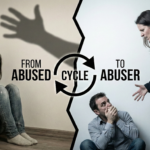The question about addictions and whether it is a disease and/or symptom relief has been the topic of debate for as long as I can remember. Is it important to know the difference? I believe it is. I know this is a very controversial subject due to all the various research, recovery models, recovery communities and opinions. I’m not writing this with any predetermined belief other than the need for all people in recovery and their loved ones to keep seeking answers to what drove them to substances in the first place.
I have had the discussion of whether someone’s addiction is a disease or symptom relief with many people in recovery and the mental health field. I have also preached that all clients at my treatment centers need to be educated on this topic. It’s not enough to just accept that you are addicted to substances. You need to understand the reason(s) behind your addictions. I believe past life events can help you determine the difference.
In my Resolution Focused Therapy (RFT) model, I identify addictions as an unhealthy ground and not as a symptom. This is a bit different than most treatment models that list addictions as a symptom. I have no doubt that addictions are used as an unhealthy ground for clients suffering from past unresolved trauma or life events. When I say unhealthy ground, I mean using substances to escape the pain of their pasts and their current symptoms (e.g., depression, anxiety, isolation, flashbacks, etc.) they are experiencing. The critical piece we add in our treatment programs is to educate and to substitute the unhealthy ground so clients can begin to work on resolving their past issues. Sobriety comes first!
One thing is clear to me after treating thousands of clients and speaking with self-identified alcoholics in recovery, the disease of addictions has one common thread, one turns to twenty regardless of your state of mind. There is no such thing as one drink or one hit from the disease aspect. The challenge is educating clients about the differences and that is the difficult part when the addiction is used to escape the symptoms generated by past unresolved trauma or life events.
Common sense tells me that you cannot determine whether your addiction is a disease or for symptom relief until you have improved your mind, body, and spirit. Unfortunately, common sense is not so common these days. If you haven’t cleaned up your act and are sober and working on the chosen recovery program, you will never really determine the cause. Once again, pinpointing the cause is needed to heal your mind, body, and spirit. If not, then you may fall prey to becoming the “dry drunk”, and never advancing your knowledge of how you got there in the first place.
The name “dry drunk” is an Alcoholics Anonymous (AA) term and describes someone who has quit drinking but hasn’t dealt with the issues that caused them to become addicted in the first place. Of course, this term can also be applied for all addictions.
In my trauma training for both clinicians and clients, I talk about the goal of balancing the Mind, Body, and Spirit philosophy. This is built on the principle that if you are not working all three concepts then you really don’t know where your addiction(s) comes from. Until you are in a healthier state of mind, you can’t assume your addiction is from a disease or a symptom relief mechanism of a past unresolved trauma. If you choose not to do the work needed to identify the source(s) of your addictions, then you become vulnerable to repeating your history.
So, how do you begin this journey to discover the roots of your addictions? Some people begin therapy or enter drug and alcohol rehabs to get clean. The problem I have witnessed is that many of the people I treated in rehabs believed that 30, 60, 90 days of treatment solves the problems of substance abuse. This couldn’t be further from the truth. Just because you are now sober does not mean you have solved the problems of what put you in that world in the first place. Believing you have achieved the end makes you very vulnerable to relapses.
If you have truly done everything in your power to improve your lives, and you still crave or can’t take a drink or a drug without needing more and more, then you clearly have the disease of addiction. Stop making excuses for not striving to live a more balanced life of the three dimensions. If you lack the motivation to strive for a better life, don’t blame it on a disease!! Do the work, then you will know the difference. The work to improve your lives is a lifetime journey. It’s not meant to have an end. We are all imperfect and should always be seeking knowledge on how to improve ourselves.
Let me end with some clarifying statements. Addictions are a very complicated problem. Whether your addiction’s come from your past unresolved traumas/life events, learned behaviors, or genetic links, the devastating outcome of possible death, contracted diseases, family destruction, Homelessness, and other negative outcomes are real. In fact, the first step involves getting and staying sober. If you aren’t ready to get sober, then there’s no point in understanding where all of it started in the first place.
Mind, Body, Spirit…Balance!
Vinnie Strumolo, CEO, CCO, LMFT






